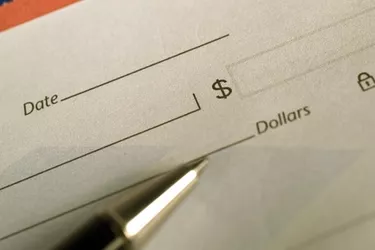
Stopping the payment of a check is a necessity at times, such as when the checks are lost and the check is written by someone other than the individual who owns the account. While there are legitimate reasons for stopping a check payment, the costs are potentially high. Laws regarding stop payments of checks vary by state, but most have similar laws.
Fraud for Debts
Video of the Day
Stopping a payment on a check of a legitimate debt is sometimes considered a fraud or an attempt to fraud. The fraud charge occurs when the check is stopped on a debt payment if the account owner did not talk to the lender about the problem originally. When the account owner talked to the lender about a financial difficulty and received an extension or other similar payment plan, the stop payment is not considered a fraud.
Video of the Day
Fees for Stop Payment
Fees are applied to an account when a stop payment is issued. The price of the fee varies by bank and by state. According to Bankrate.com, the price ranges between $18 and $32 dollars for most states and banks. The fees are high because the stop payment is a time-consuming process for the bank.
Description of Check
To issue a stop payment, the customer of a bank must have a proper description of the check. A proper description consists of a check number, payee name and the amount written on the check. If the account owner cannot provide the appropriate information, the check is processed like normal and the stop payment is refused.